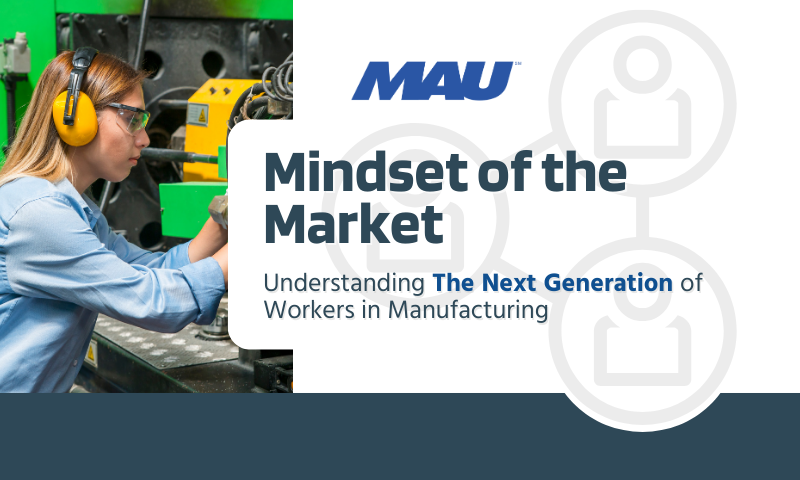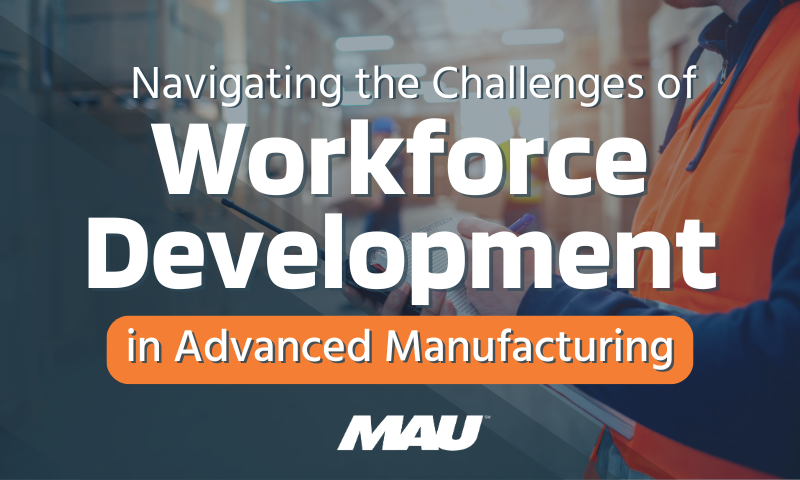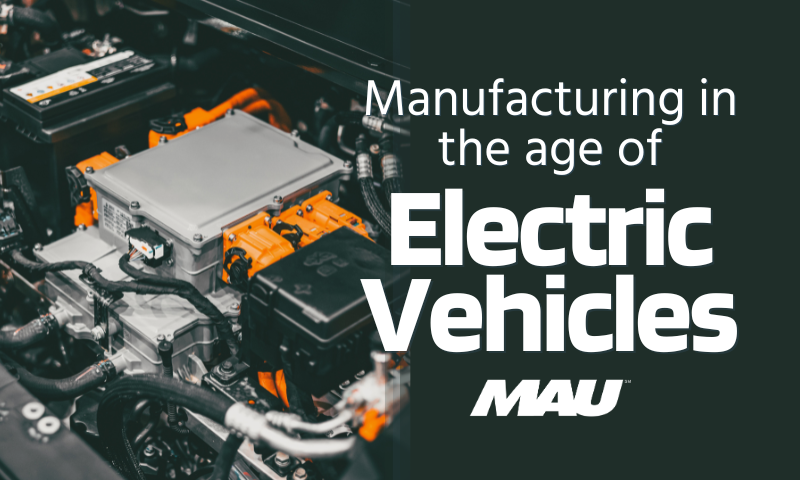The manufacturing industry is a constantly evolving ecosystem. It is reshaped by the changing needs, attitudes, and behaviors of its workforce. As the next generation of the manufacturing workforce emerges, the industry must adapt to stay relevant and competitive.
Our second Mindset of the Market survey offered invaluable insights into this dynamic ecosystem. With 2,661 responses, our survey revealed key trends that define the modern manufacturing workforce. Notably, the rise of Generation Z (Gen Z) has brought about new directions and expectations that are changing the face of the industry.
Gen Z now makes up a significant portion of the global workforce, in 2030, we’ll see Generation Z constitute about 30% of the workforce. This group brings a new set of skills and expectations to the table, which will impact how industry leaders approach workforce management.
Understanding the Next Generation
Growing up with technology being an integral part of their everyday lives, Gen Z employees are not only comfortable but also proficient with data-driven decision-making. They are eager to exploit the latest technologies to improve efficiency and productivity, heralding a new era of innovation in the manufacturing industry. 61% of Gen Z workers also view the manufacturing industry as “high tech”, shifting a long-held mindset held by older generations.
Also, Gen Z places a high value on work-life balance. with 51% of Gen Z respondents placing Work/Life Balance ahead of Salary, Scheduling, and Education. They also tend to work long hours, and prefer optional overtime compared to mandatory overtime.
Regarding pay, Gen Z places high value on competitive compensation, with 31% stating that an increased salary would most significantly improve their job satisfaction. 58% would choose higher pay over benefits like flexible scheduling or generous PTO. The majority also feel that their superiors make much more than they do (71%), while their peers make the same.
Gen Z is a generation heralded for being extremely self and socially aware, leading to an innate desire to contribute to social and environmental causes. This shifted mindset is pushing companies to adopt sustainable manufacturing practices. Corporate social responsibility is no longer just an added advantage but an absolute necessity. It is becoming an integral factor, shaping the industry into a more inclusive and forward-thinking space.
Strategies to Adapt to a Changing Workforce
Understanding these shifts in the workforce landscape is crucial for business leaders. It requires redefining conventional norms, rekindling the drive for innovation, and rethinking strategies for workforce management. The key to succeeding in this changing environment lies in balancing adaptation with innovation.
The Mindset of the Market results indicate several effective strategies to boost employee engagement and satisfaction within the workplace. These approaches include not only competitive salary packages but also the implementation of flexible scheduling options to cater to individual needs. Additionally, enhancing benefits such as healthcare coverage and professional development opportunities can significantly contribute to employee well-being and motivation.
Moreover, creating a diverse and inclusive work culture is crucial for attracting and retaining top talent from Gen Z. This involves fostering an environment of open communication, embracing diversity in all its forms, and providing equal opportunities for growth and advancement.
The industry’s future lies in the hands of those who can successfully implement these changes. As the manufacturing industry continues to evolve, it is crucial to stay attuned to these shifts and embrace a mindset of continuous improvement.
In conclusion, the advent of Gen Z brings a wave of transformations that could redefine the manufacturing industry.
Adapting to this shift isn’t just a choice; it’s a necessity. It’s a journey towards an inclusive, innovative, and sustainable future. Let’s embrace this change together and forge ahead towards a prosperous future in the manufacturing industry.





